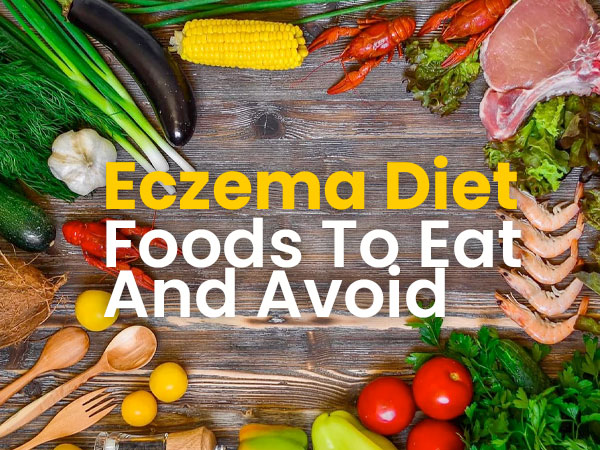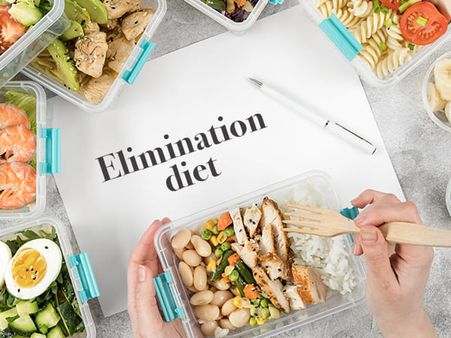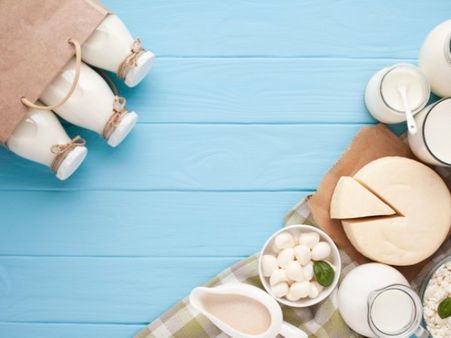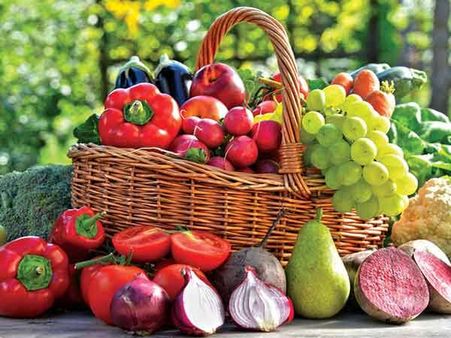Just In
- 43 min ago

- 5 hrs ago

- 6 hrs ago

- 15 hrs ago

Don't Miss
- Sports
 GT vs DC IPL 2024: Will David Warner play against Gujarat Titans? Ricky Ponting's concerning Update
GT vs DC IPL 2024: Will David Warner play against Gujarat Titans? Ricky Ponting's concerning Update - Finance
 2:1 Bonus Issue, Rs 2/Share Dividend: Buy Multibagger Defence PSU, TP Rs 280: Analysts
2:1 Bonus Issue, Rs 2/Share Dividend: Buy Multibagger Defence PSU, TP Rs 280: Analysts - Movies
 Bade Miyan Chote Miyan Vs Maidaan Box Office Collection Day 6: Akshay Kumar BEATS Ajay Devgn. Margin Is...
Bade Miyan Chote Miyan Vs Maidaan Box Office Collection Day 6: Akshay Kumar BEATS Ajay Devgn. Margin Is... - News
 UAE Weather Report: Floods Hit Dubai, 18 Dead; Govt. Shuts Schools, Colleges
UAE Weather Report: Floods Hit Dubai, 18 Dead; Govt. Shuts Schools, Colleges - Education
 UPSC Success Story: An IITian, A Government Job Holder at Railways, Quit the Job and Emerged as an IAS
UPSC Success Story: An IITian, A Government Job Holder at Railways, Quit the Job and Emerged as an IAS - Automobiles
 Jeep Compass Gets More Powerful 268.3bhp Turbo Petrol Engine – Check Out All The Details Here
Jeep Compass Gets More Powerful 268.3bhp Turbo Petrol Engine – Check Out All The Details Here - Technology
 Redmi Pad SE With 90Hz Display Launching on April 23 in India; Could Be Priced for Less Than Rs 20,000
Redmi Pad SE With 90Hz Display Launching on April 23 in India; Could Be Priced for Less Than Rs 20,000 - Travel
 From Coconut Breaking on Head to Men Dressing as Women: 12 Unique Indian Rituals Explored
From Coconut Breaking on Head to Men Dressing as Women: 12 Unique Indian Rituals Explored
Eczema Diet: What Foods Should You Eat And Avoid
Eczema (atopic dermatitis) is a skin condition that causes patches of skin to become red, itchy and inflamed. It is common in children but it can happen at any age [1]. A person with eczema will experience symptoms like dry, itchy skin, cracked, scaly skin, sensitive skin, red patches and red bumps on the skin.
Heredity, environmental factors and food allergies are said to be the causes of eczema. A research study found that the risk of eczema among infants is lower if their mothers consume probiotics and avoid drinking cow's milk during pregnancy. Breastfeeding during the first three months also reduces the risk of developing eczema among infants with a family history of eczema [2].
In this article, we'll talk about the link between food allergies and eczema and the foods to eat and avoid for eczema.

Food Allergies And Eczema
Food allergies occur as a result of certain foods that trigger an abnormal immune response, which causes skin inflammation.
Food allergies are more common among people with eczema. And studies have shown that the prevalence of food allergy is about 20 to 80 percent in people with eczema. The common food allergens that trigger eczema are milk and milk products, eggs, peanuts, soy, seafood, wheat and shellfish [3].
Food allergy increases the severity of eczema and an elimination diet decreases the severity.


What Is The Elimination Diet?
The allergic reactions caused by eating certain foods usually occur in 6 to 24 hours. To determine what foods are causing an allergic reaction, the doctor may recommend an elimination diet, which involves avoiding certain foods that are causing eczema.
Before eliminating any foods, a person has to gradually include each type of food into their diet and monitor their skin for four to six weeks to check if they are sensitive to any particular food. If the eczema symptoms get worse after including a particular food into the diet, the food should be completely avoided [4] [5].
The common foods that may trigger eczema and can be eliminated from the diet include the following:
- Eggs
- Citrus fruits
- Dairy
- Soy
- Wheat
- Tomatoes
- Spices like cinnamon and cloves
- Some types of nuts
- Rye
- Oats
- Whole wheat
- Soybeans and soy products
- Dried fruits
- Baking powder
- Chickpeas
- Canned foods
- Chocolate
- Lentils
- Nuts and seeds
- Peas
- Beans
- Shellfish
- Black tea
Another diet known as the dyshidrotic diet is for people with dyshidrotic eczema, a condition in which tiny fluid-filled itchy blisters appear on the palms, soles of the feet, and edges of the fingers and toes. People with this type of eczema need to avoid foods that contain nickel and cobalt [6] [7].
Nickel and cobalt are found in these foods:


What Foods To Eat If You Have Eczema?
Consuming anti-inflammatory foods can help ease the symptoms of eczema.
- Fatty fish
- Quercetin-rich foods
- Berries
- Apples
- Onions
- Tomatoes
- Grapes
- Shallots
- Black and green tea
- Nuts and seeds
- Broccoli
- Yogurt
- Tempeh
- Kefir
- Kombucha
- Miso soup
- Kimchi
- Pickled vegetables
- Sauerkraut
Fatty fishes such as salmon, mackerel, herring, tuna, sardine and trout are high in omega 3 fatty acids, which are anti-inflammatory and can help reduce skin inflammation [8] [9] [10]. If you are a vegetarian, you can obtain omega 3 fats from plant-based foods sources like flaxseeds, chia seeds, spinach and Brussels sprouts.
Quercetin is a naturally-occurring flavonoid found in many fruits and vegetables. It has powerful antioxidant and antihistamine properties that can lower inflammation and histamine in the body, thus preventing eczema flare-ups [11] [12].
The foods which contain quercetin are:
• Probiotic-rich foods
Probiotics are live bacteria and yeast that live in your body and are beneficial for keeping your gut healthy. Probiotics have also been shown to reduce eczema flare-ups in some studies [13].
The foods which are rich in probiotics are:

What Foods To Avoid If You Have Eczema?
Some common foods can trigger the symptoms of eczema, which should be completely avoided. These foods are:
- Eggs
- Dairy products
- Nuts
- Soy
- Wheat
- Citrus fruits
- Tomatoes
Processed foods contain artificial ingredients and preservatives which can also increase the symptoms of eczema. These include MSG, trans fat, high fructose corn syrup, artificial colours and artificial sweeteners.


Can Eating Gluten-free Foods Help Reduce Eczema?
Eczema is also common among people with celiac disease [14]. This may be possibly due to a genetic link between the two conditions. A person with celiac disease should avoid consuming gluten foods like wheat, rye, barley, spelt, bread, pasta and cereals. A study published in the journal Nutrients found that people with non-celiac gluten sensitivity who had skin problems, including skin rashes that looked similar to eczema, dermatitis herpetiformis and psoriasis had a significant improvement in their skin after adopting a gluten-free diet [15].
Another 2017 study pointed out that people with eczema who had removed gluten foods from their diet showed a significant improvement in their eczema symptoms [16].
The foods which are naturally gluten-free can be eaten if you have eczema. These include the following:
- Meat
- Fish
- Eggs
- Plain yogurt
- Fruits and vegetables
- Quinoa
- Rice
- Buckwheat
- Potatoes
- Amaranth
- Nuts and seeds
- Herbs and spices

To Conclude…
There are certain foods that cause food allergies that can increase the severity of eczema. Identifying these foods and eliminating them completely from your diet can help you manage the condition better. Focus on a healthy diet that includes fruits, vegetables and lean protein.
Note: It is recommended to consult a doctor before making any dietary changes. Also, if you are planning to become pregnant and you have a family history of eczema, talk to your doctor about it.
-
 healthAmitabh Bachchan's Grandson Agastya Battles Eczema: Know About This Painful Skin Condition
healthAmitabh Bachchan's Grandson Agastya Battles Eczema: Know About This Painful Skin Condition -
 kidsFoods You Should Avoid Giving Your Children With Eczema
kidsFoods You Should Avoid Giving Your Children With Eczema -
 wellnessNational Eczema Week 2021: What Clothing Triggers Eczema Flare-ups?
wellnessNational Eczema Week 2021: What Clothing Triggers Eczema Flare-ups? -
 wellness8 Effective Natural Remedies That Can Help Manage Eczema Symptoms
wellness8 Effective Natural Remedies That Can Help Manage Eczema Symptoms -
 newsMultiple Genes Responsible For Asthma, Eczema And Hay Fever
newsMultiple Genes Responsible For Asthma, Eczema And Hay Fever -
 wellnessCan Eczema Be Mistaken For Ringworm?
wellnessCan Eczema Be Mistaken For Ringworm? -
 kidsEczema In Toddlers: Causes, Symptoms And Treatments
kidsEczema In Toddlers: Causes, Symptoms And Treatments -
 disorders cureNeem Oil For Eczema: Benefits And How To Use
disorders cureNeem Oil For Eczema: Benefits And How To Use -
 body careHow To Get Fast Relief From Eczema
body careHow To Get Fast Relief From Eczema -
 skin careTreat Eczema At Home With These Natural Remedies
skin careTreat Eczema At Home With These Natural Remedies -
 wellnessSkin Conditions That Actually Signal Other Health Problems
wellnessSkin Conditions That Actually Signal Other Health Problems -
 disorders cureHow To Use Apple Cider Vinegar To Treat Eczema
disorders cureHow To Use Apple Cider Vinegar To Treat Eczema


 Click it and Unblock the Notifications
Click it and Unblock the Notifications



